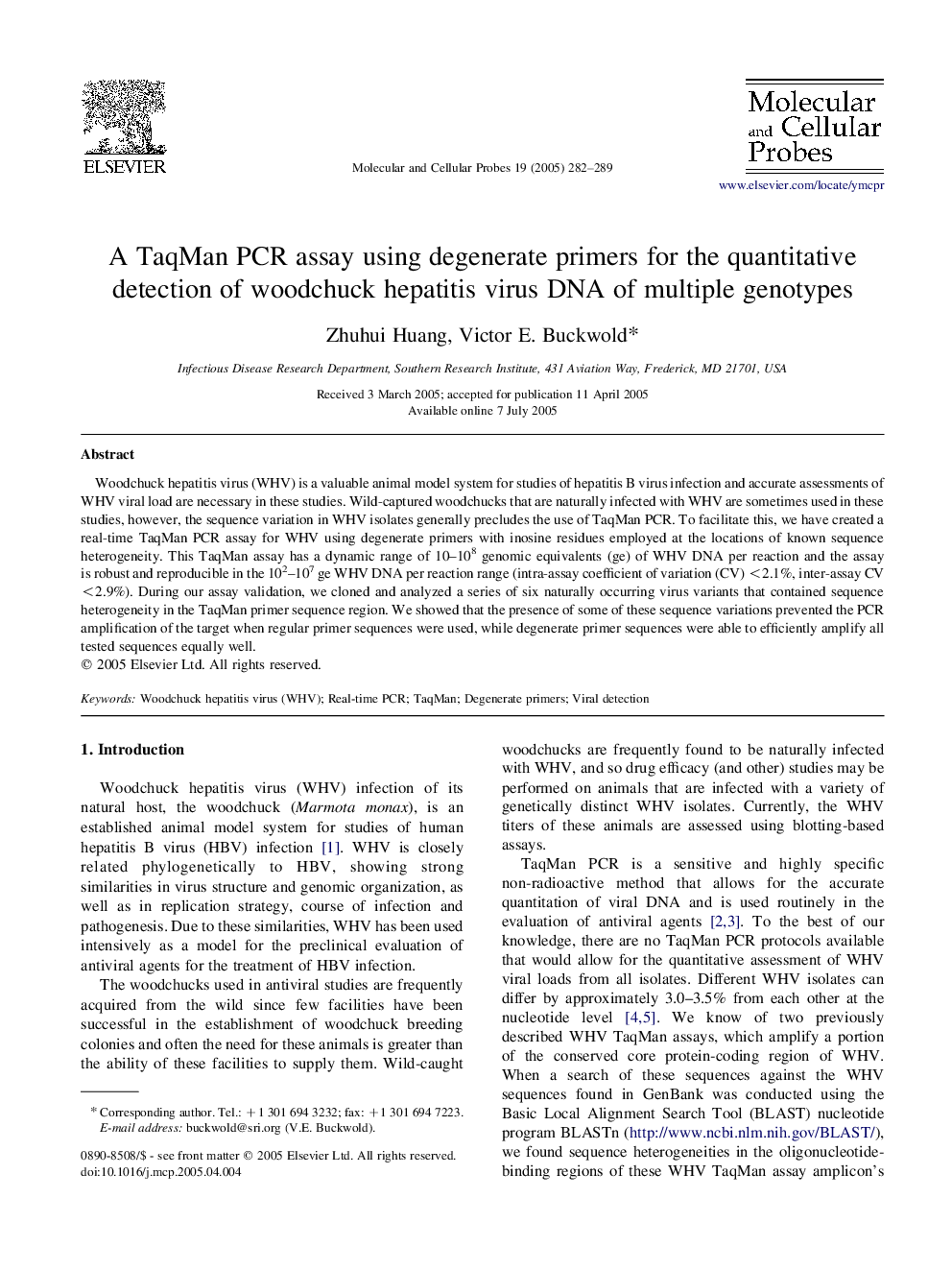| Article ID | Journal | Published Year | Pages | File Type |
|---|---|---|---|---|
| 10957729 | Molecular and Cellular Probes | 2005 | 8 Pages |
Abstract
Woodchuck hepatitis virus (WHV) is a valuable animal model system for studies of hepatitis B virus infection and accurate assessments of WHV viral load are necessary in these studies. Wild-captured woodchucks that are naturally infected with WHV are sometimes used in these studies, however, the sequence variation in WHV isolates generally precludes the use of TaqMan PCR. To facilitate this, we have created a real-time TaqMan PCR assay for WHV using degenerate primers with inosine residues employed at the locations of known sequence heterogeneity. This TaqMan assay has a dynamic range of 10-108 genomic equivalents (ge) of WHV DNA per reaction and the assay is robust and reproducible in the 102-107 ge WHV DNA per reaction range (intra-assay coefficient of variation (CV) <2.1%, inter-assay CV <2.9%). During our assay validation, we cloned and analyzed a series of six naturally occurring virus variants that contained sequence heterogeneity in the TaqMan primer sequence region. We showed that the presence of some of these sequence variations prevented the PCR amplification of the target when regular primer sequences were used, while degenerate primer sequences were able to efficiently amplify all tested sequences equally well.
Related Topics
Life Sciences
Biochemistry, Genetics and Molecular Biology
Cell Biology
Authors
Zhuhui Huang, Victor E. Buckwold,
